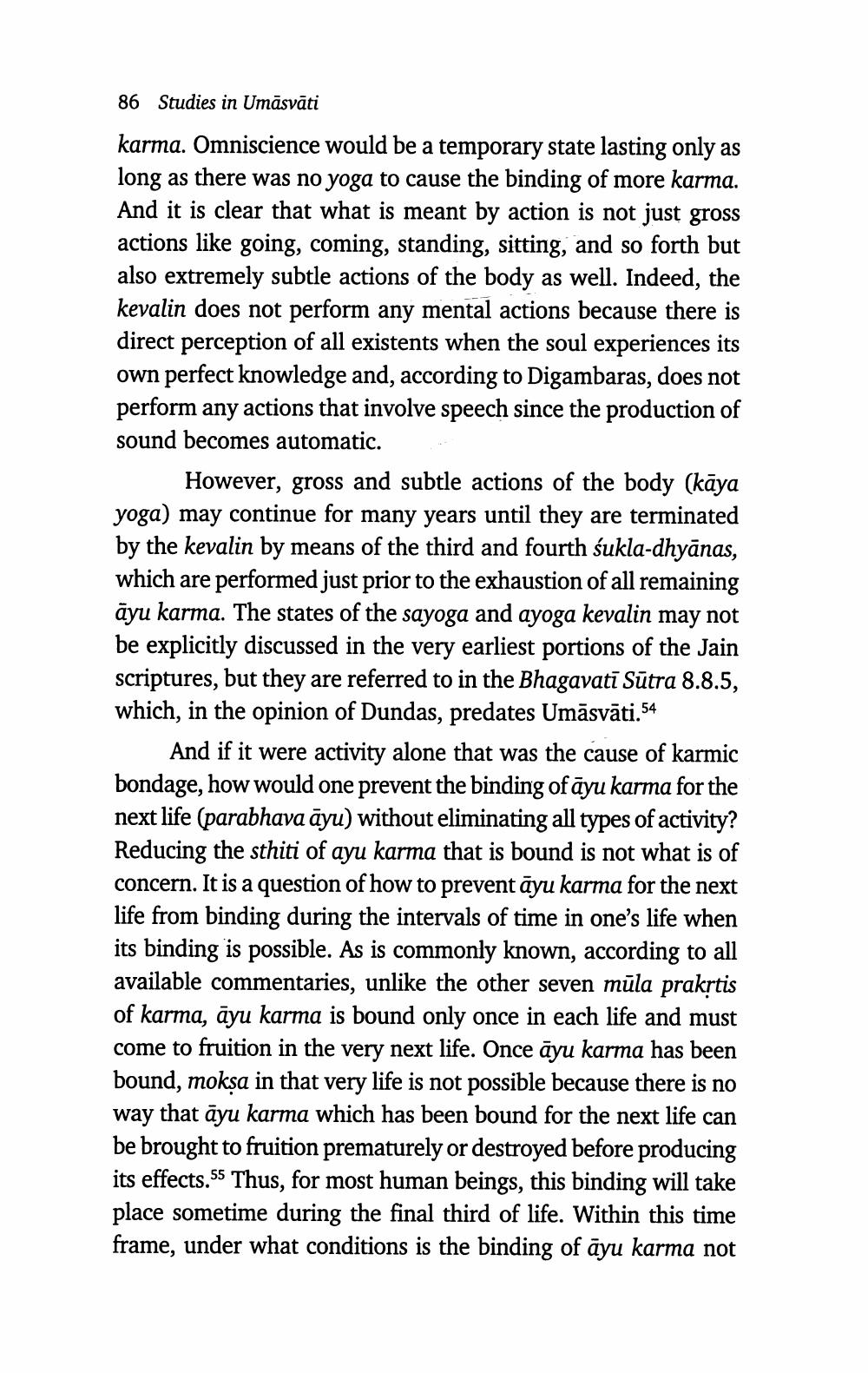________________
86 Studies in Umāsvāti karma. Omniscience would be a temporary state lasting only as long as there was no yoga to cause the binding of more karma. And it is clear that what is meant by action is not just gross actions like going, coming, standing, sitting, and so forth but also extremely subtle actions of the body as well. Indeed, the kevalin does not perform any mental actions because there is direct perception of all existents when the soul experiences its own perfect knowledge and, according to Digambaras, does not perform any actions that involve speech since the production of sound becomes automatic.
However, gross and subtle actions of the body (kāya yoga) may continue for many years until they are terminated by the kevalin by means of the third and fourth śukla-dhyānas, which are performed just prior to the exhaustion of all remaining āyu karma. The states of the sayoga and ayoga kevalin may not be explicitly discussed in the very earliest portions of the Jain scriptures, but they are referred to in the Bhagavati Sūtra 8.8.5, which, in the opinion of Dundas, predates Umāsvāti.54
And if it were activity alone that was the cause of karmic bondage, how would one prevent the binding of āyu karma for the next life (parabhava āyu) without eliminating all types of activity? Reducing the sthiti of ayu karma that is bound is not what is of concern. It is a question of how to prevent āyu karma for the next life from binding during the intervals of time in one's life when its binding is possible. As is commonly known, according to all available commentaries, unlike the other seven mūla prakrtis of karma, āyu karma is bound only once in each life and must come to fruition in the very next life. Once āyu karma has been bound, mokṣa in that very life is not possible because there is no way that āyu karma which has been bound for the next life can be brought to fruition prematurely or destroyed before producing its effects.55 Thus, for most human beings, this binding will take place sometime during the final third of life. Within this time frame, under what conditions is the binding of āyu karma not




